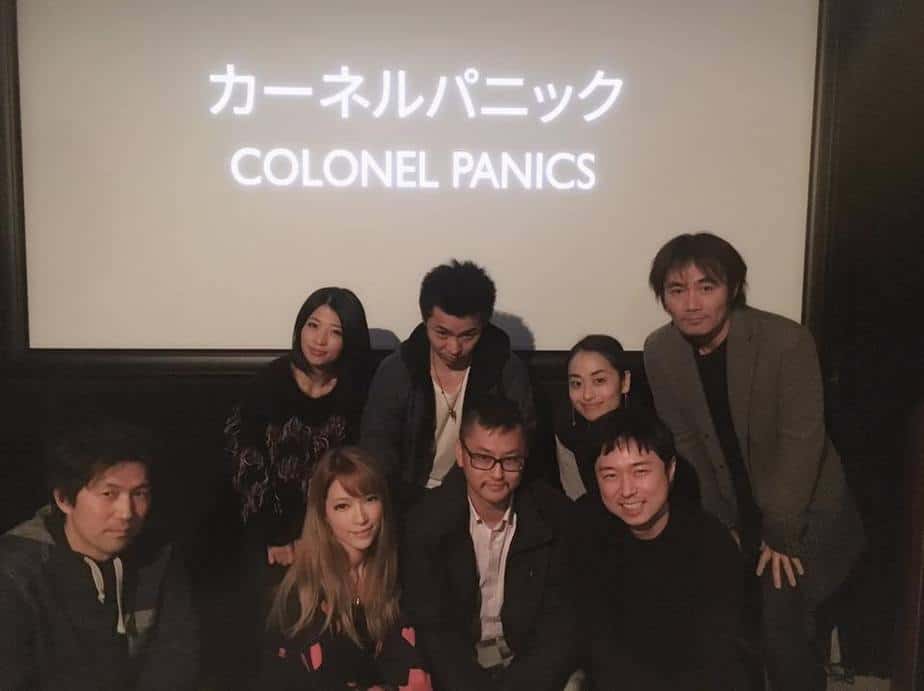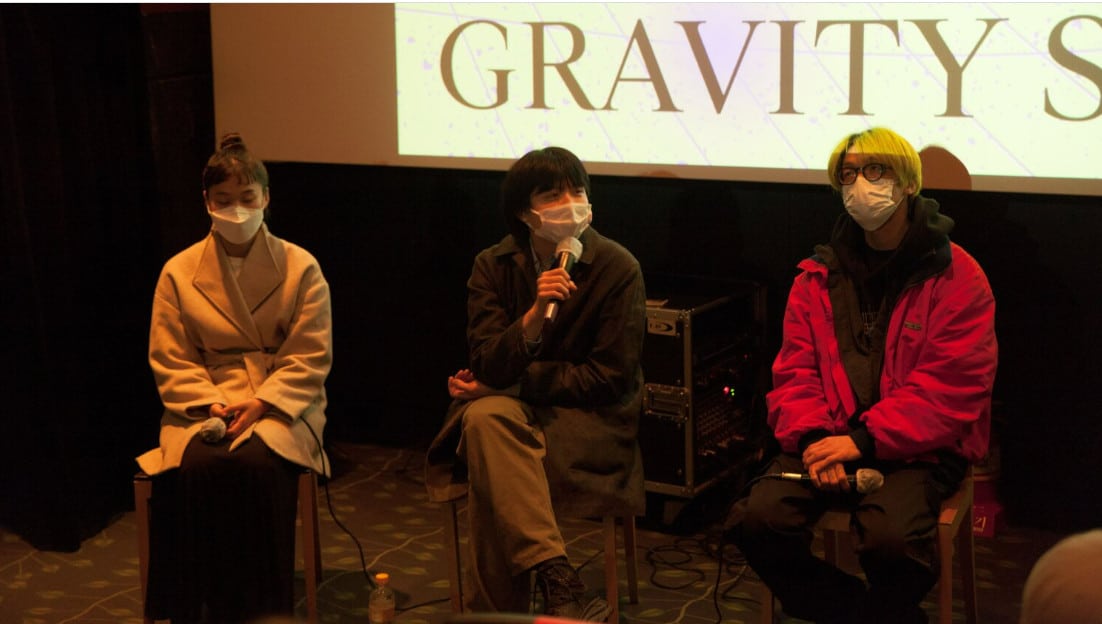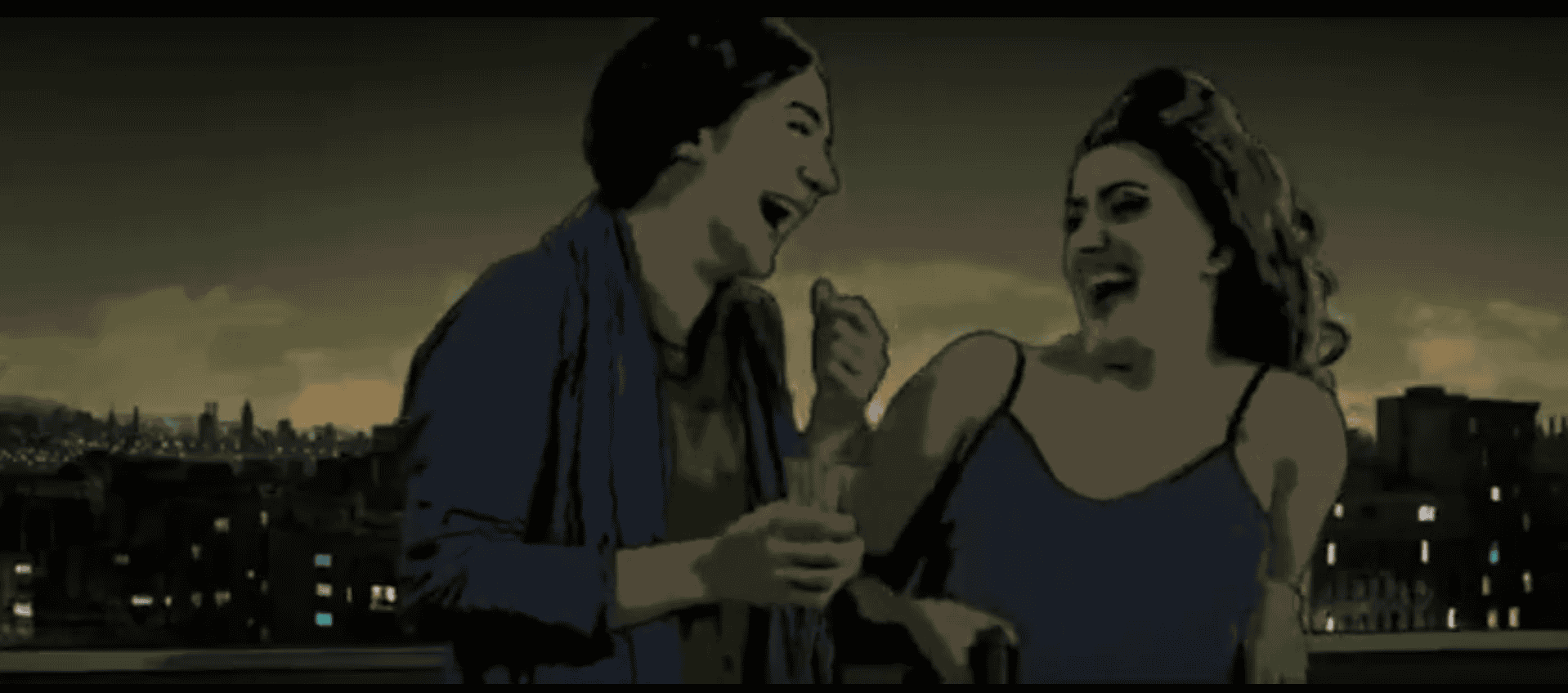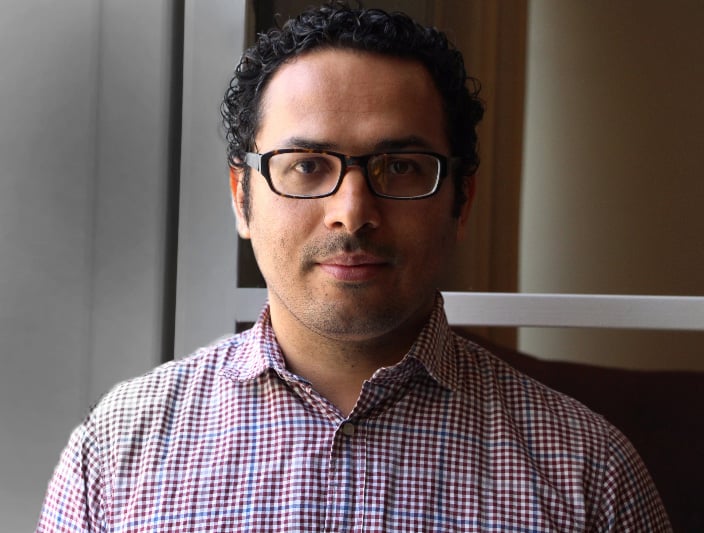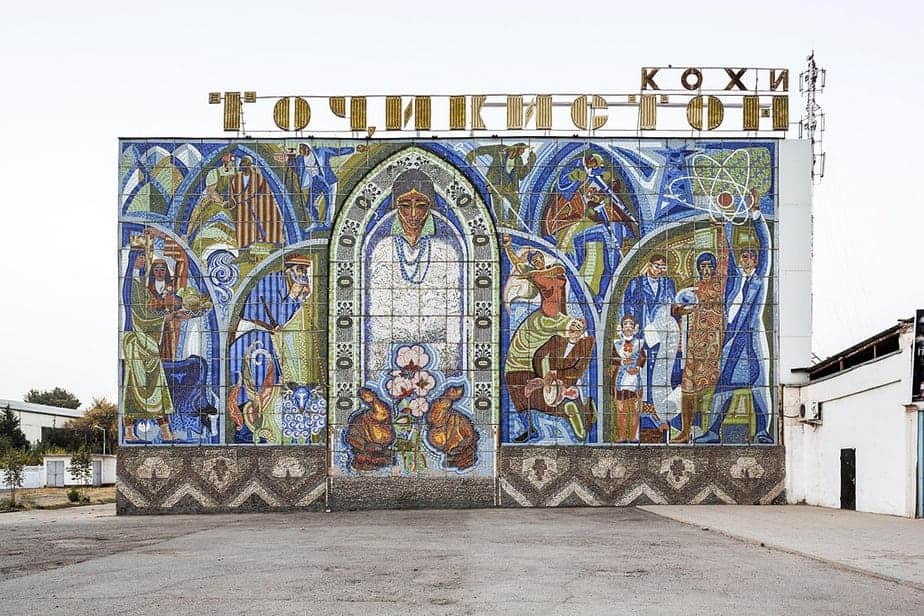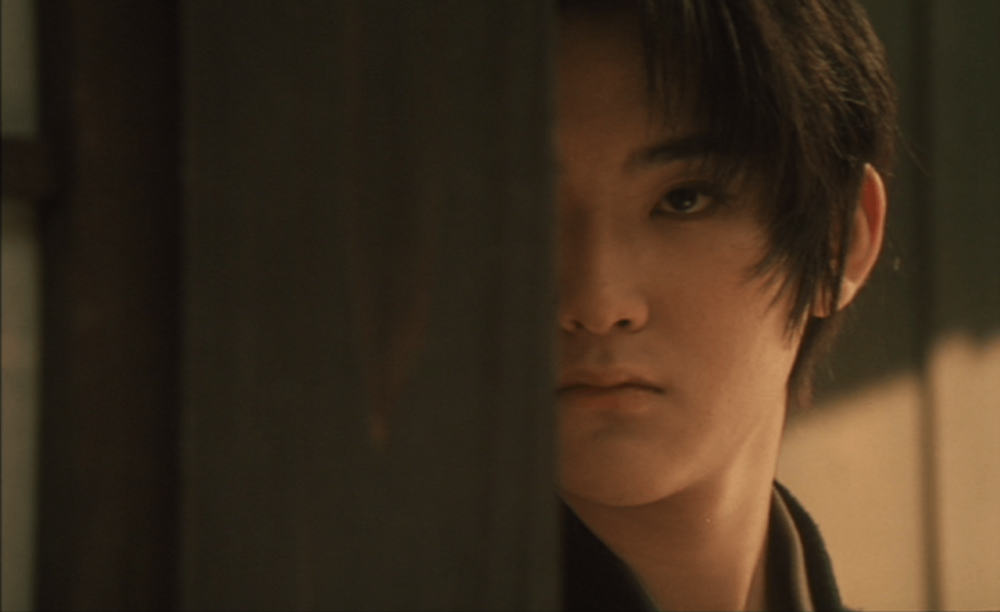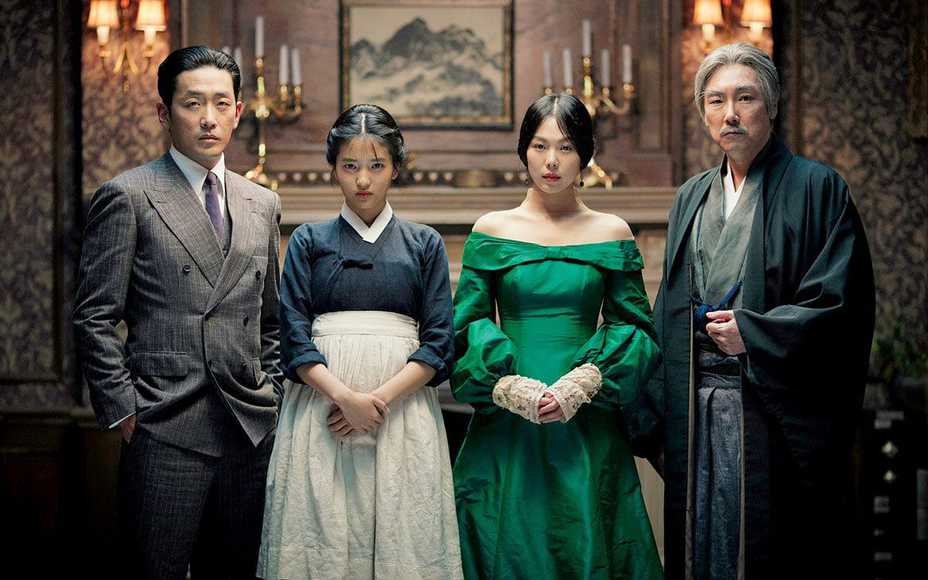Conceived in Busan and born in Seoul, Cho Jinseok is a filmmaker who also developed the Cholol Technique for philosophical inquiry by blending contemporary western and Korean practices of argumentation. He studied media and communications theory and Chinese language at university. Colonel Panics is his debut film.
We talk to him about his life, the film, history, technology, art and many other topics.
How does an S.Korean who deals with philosophy, and has studied media and communications theory, and Chinese language, ends up shooting a Japanese film?
A friend in Tokyo approached me a couple of years ago and asked me whether I wanted to housesit their place as they were going away for quite a while. I agreed, made the move to Tokyo and lived there for a while, soaking up the culture, the history and the people. I found the political situation in Japan very fascinating and decided I would like to make a film exploring the intersection of politics, sex, culture and power in modern Japan.
We raised some finance, put together a great cast and crew and began shooting.
In general, could you tell us a bit about the production of the film?
We shot the film in Tokyo, did post-production in America and all the visual effects were done in Australia so it was very much a global production. The shoot itself was tough, we were very low-budget and there were some language barriers to get over but we survived. I think there were some people who felt it was like war working with me and there's a photo of me taken during filming where I am wearing a military uniform; I think it's telling some crew members said that outfit suited me and I would make a great North Korean dictator!
Can you elaborate on the title of the film?
The Japanese title is literally “Kernel Panics” as in the computer malfunction that will destroy your computer (it happened to my laptop during production). For the English title I liked the idea of doing a play-on-words with the word “Colonel” doubling for “Kernel”. This use of a military word in place of a technological word was also to hint at the militaristic dimensions of the film, rather than purely technological.
In one of the initial scenes, Kuniko speaks about a technique they used, letting a computer rewrite a story through repetition. What is your opinion regarding the combination of art and technology?
The fusion of art and technology has been an ongoing story for centuries, but I'm particularly interested in how artificial intelligence and creativity interact. Maybe you've seen the Google deep dream imagery of the dogs and the knight – for me, it's one of the most terrifying things I've seen, it was like looking into the abyss of a robot's soul. I actually feel deeply uncomfortable even remembering those images. Even though it is horrific and disturbing I'm strangely attracted to it, I do want to see more ways in which artificial intelligence crafts stories and how they develop their own sense of culture and creativity.
The film also shows a future where virtual reality has taken over. What is your opinion on the subject?
A part of me is scared, I fear we will all end up living vicariously through these VR helmets, no one will want to have sex anymore because the VR experience will be too seductive. Then birth-rates decline and productivity declines and you have this dystopia of addicts. Maybe I already see that when I walk around and see how people are so addicted to their smart phones, you walk around Tokyo and see these people who are just glued to their screen, it's so sad.
Now the other part of me is optimistic because I think there's always a fear with bold new technology that it will signal humanity's downfall. You could argue televisions invading the home had a negative impact on humanity but it didn't doom us, so maybe I just have to hope VR won't completely destroy our ability to connect in the flesh world. VR will probably ruin our brain's ability to defer gratification though, I think you can already see how gaming and computers are ruining our patience thresholds.
The film deals with the issue of “comfort women”. What is your take on the matter?
History is a complex beast and there are skeletons in nearly everyone's closets; I mean, we always talk about American imperialism and its history of conquest but do we ever stop to talk about Islamic slavery and rampage in the past? That doesn't fit the narrative some people want to push, but my point is that nobody is immune from criticism from past historical actions.
Having said that, the “comfort women” issue is something which happened, it was a terrible and shameful chapter in history and there can only be healing when there is an honest reconciliation with the past. There were bad Japanese and good Japanese, bad Koreans and good Koreans, bad Chinese and good Chinese in the war. There's no point today in collectivising an entire people for something that happened decades ago but we cannot deny this kind of past if we all want to move on and heal.
What is your opinion on nationalism in Japan?
I think it is a natural reaction when a pervading sense of weakness grips a nation, from the sexual (look at Japan's birth-rates) to the economic (their economy has been suffering), and people look for something that they can feel a sense of pride and power in. The politicians supply this as a way of distracting from the real problems in the culture, in the mind, in the spirit.
I feel sickened when I see Japanese politicians worshipping at shrines honouring the wartime soldiers.
I also think there needs to be a more robust discussion about the Emperor's role in the second World War and just how much leverage he had over the army and the atrocities they committed.
In general, what is your opinion regarding art and politics? Do you think that artists are “obliged” to talk about politics?
I think all great art deals with the society in which it is produced and you cannot help but touch upon the ‘political' when you undertake that process. Look at a recent film like Joao Pedro Rodrigues' The Ornithologist, it is a deeply political film in its own way but it's also an extraordinary sensory, artistic experience, a masterpiece of the personal and the political.
Cinema is a giant family, there is room for all different types but I prefer films which explore, not dictate, their political dimensions.
Why did you decide to use Yusuke Miyawaki and Tia Tian in double roles?
They both had perfect faces. As soon as I saw their faces I knew they were the only ones who could travel from the present to the future through their facial structure.
In general, why did you cast the particular actors and how did you guide them through the film?
For me the big thing was their eyes and their ability to act without emotion. Many Japanese actors I met tended to overplay it, and I was looking for robots: consciousness is an illusion anyway, albeit a persistent one.
When we were preparing I just wanted everyone to feel like they had a vampire suck the life from them. I wanted people who were like robots.
The film features kaleidoscopic sequences and datamosh. Why did you choose to include them in the film?
I worked with an amazing Australian visual designer called Luke Trevitt and we discussed what would happen if artificial intelligence did the robotic equivalent of ayahuasca. Those sequences were an attempt to visualise that idea. Those sequences were us finding a language to express our ideas about what happens when robotic consciousness loses its' mind.
The movie also features a number of violent scenes. What is your opinion on violence in cinema?
I love violent movies but I prefer violence when it is at the service of a more considered point. Yes, Colonel Panics has some violent imagery but I think it is to illustrate the connections between Japanese history, particularly wartime sexually violent atrocities, and today's sanitised and video-game like consumption of violence. But, y'know, nothing in Colonel Panics is as horrifying as the real-life atrocities Japanese soldiers carried out in Nanking, atrocities which some nationalists still want to deny and sweep under the rug; that act of denial is more disgusting than anything in my film.
And what about sex and nudity?
I'm most interested in sex in the context of power and how power flows through the act of sexual intercourse and the sexual marketplace. I remember Truffaut saying something about pornography being the byproduct of cinematic lies about love (I'm butchering his words but it was something to that effect), and I agree, I think a lot of movies have been very dishonest about sexuality and nudity. But then pornography is dishonest in its own way too, so we aren't left with a great deal of truth about sex in the movies. There are exceptions but overall I'm not that interested in sex in cinema unless it explores the power dynamics between people.
Which are your favorite filmmakers and what kind of movies do you like to watch?
So many, where do you begin? Budd Boetticher, Dreyer, Ida Lupino, Kim Kiyoung, John Carpenter, Jang Sunwoo, Li Hongqi, Nicholas Ray, Pasolini, Fassbinder, Lucio Fulci, Lau Karleung, Joao Pedro Rodrigues, Adam Curtis… Oshima, obviously, as the film is dedicated to him.
The movies I love to watch are westerns, especially those of Anthony Mann. I'm obsessed with American westerns.
What are your plans for the future?
I am writing a film exploring the love and hate between a Japanese pornographic actress and her manager as they go about their business over a 24-hour period, only to find out she has been diagnosed with cancer. It's a twisted love story like Colonel Panics.


